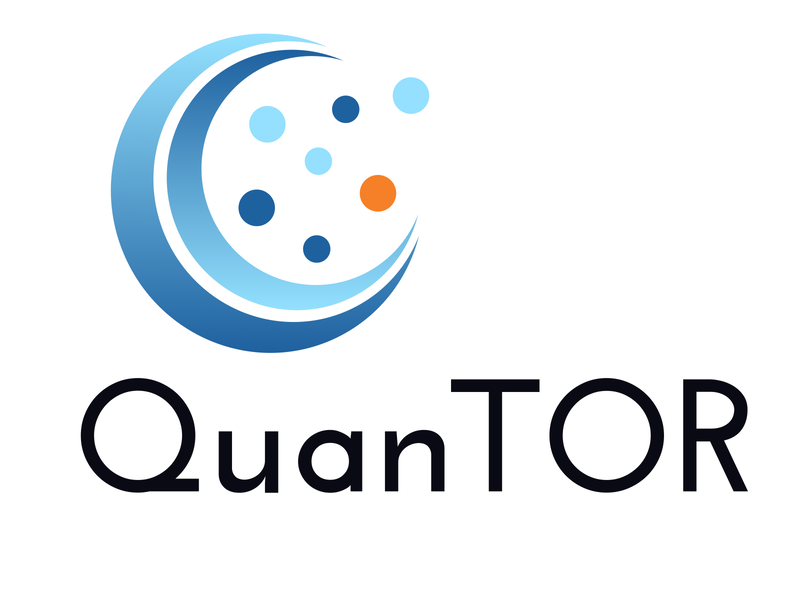
A WEAVE project funded by the German Research Council and the Swiss National Fund (project no. 528467412).
- QuanTOR
- Team
- Publications
- Resources
- DGfS 2026 AG
AG 9: Linguistic patterns of textual organization across registers
Workshop at the 48th Annual Meeting of the German Linguistic Society (DGfS 2026) | Trier, Germany | 24–27 February 2026
Description
Register refers to linguistic patterns associated with particular situational contexts (Seoane & Biber, 2021, p. 2) where the linguistic patterns are clusters of features having a greater-than random likelihood to co-occur. In register studies, the focus has traditionally been on the aggregative analysis of lexico-grammatical features in entire texts, thus neglecting the dynamic unfolding of situations – linked by the above definition to register – over time. However, the situational characterisation of a text as unfolding over time should not only allow predictions about characteristic linguistic features but also when these features can be expected to occur in the unfolding text. In linguistics, this sequential character has been mainly linked to genre, defined as a goal-oriented activity enacting social practices of a culture that exhibits a recurring structure in the form of stages or moves (Swales, 1990, Martin & Rose, 2008). These approaches, however, tend to neglect the well-documented linguistic variation across registers, as well as recent progress in large language models (LLM), which have been applied to text structure segmentation (e.g. Braud et al., 2023).
This workshop aims to bring together research from all three fields – register, genre, and computational linguistics – to explore the interface between them and the possibility of integrating the temporal dynamics of textual organisation with the situational patterning reflected in register.
We invite theoretical and empirical submissions that cover the cross-section of register studies with linguistic approaches such as rhetorical structure theory, genre/move analysis, interactional linguistics and computational approaches to discourse structure as well as quantitative linguistics and LLM research.
Important dates
| 17 Aug 2025 | Deadline for abstract submission |
| 15 Sep 2025 | Notification of acceptance |
| 25–27 Feb 2026 | Workshop dates |
Programme
Wednesday, 25 Feb 2026
- 13:45–14:15 Introduction (Stella Neumann, Stephanie Evert, Gerold Schneider)
- 14:15–15:15 Invited talk: Interfaces of meaning: Modelling register and genre in a stratified system (Miriam Taverniers)
- 15:15–15:45 Towards computational segmentation of impromptu stories in biographical interviews (Fritz Kliche, Michael Corsten, Laura Maleyka, Ulrich Heid)
- 15:45–16:30 — coffee break —
- 16:30–17:00 Combining PCA and GLM to overcome data sparsity in the multivariate analysis of linguistic variation (Mahdi Mantash, Stephanie Evert)
- 17:00–17:30 Outliers, novel registers or plain errors? Analysing texts with no register label (Saara Hellström, Erik Henriksson, Antti Kanner, Veronika Laippala)
- 17:30–18:00 Discussion
Thursday, 26 Feb 2026
- 09:00–09:30 Theorizing temporal dynamics in register: Context, instantiation, and the unfolding of situation (Rebekah Wegener)
- 09:30–10:00 Modelling the influence of individual differences in real-time language processing: Introducing the sCIA+ – an extension of the social Coordinated Interplay Account (Katja Maquate, Valentina Pescuma, Heike Wiese, Pia Knoeferle)
- 10:00–10:30 Making sense of human-annotated text structure using automatic segmentation contours (Sophia Conrad, Florian Frenken)
- 10:30–11:15 — coffee break —
- 11:15–11:45 Computational Modelling of Register Variation in Positive Online Language (Maria Berger, Yulia Clausen, Hannah Seemann)
- 11:45–12:15 Analysing text macro structures with automatic register identification (Antti Kanner, Saara Hellström, Erik Henriksson, Veronika Laippala)
- 12:15–12:45 Temporal dynamics and linguistic patterns in discourse modes: The case of narrative passages (Hanna Schmück, Sonja Zeman, Annemarie Friedrich, Claudia Claridge)
- 12:45–13:45 — lunch break —
- 13:45–14:15 Evidence for the interrelation of genre and register features in Jonas Bretkūnas’s Old Lithuanian sermons (Mortimer Drach, Anna Helene Feulner)
- 14:15–14:45 Discussion
Friday, 27 Feb 2026
- 11:45–12:15 Exploring text-internal register organization using machine learning (Erik Henriksson, Saara Hellström, Antti Kanner, Veronika Laippala)
- 12:15–12:45 Linear distribution of register features in the context of Early New High German register and genre research (Jürg Fleischer, Lena Haden, Gohar Schnelle, Lars Erik Zeige)
- 12:45–13:45 Final discussion
Organisation
- Stephanie Evert, FAU Erlangen-Nürnberg
- Stella Neumann, RWTH Aachen University
- Gerold Schneider, University of Zürich
Contact: dgfs2026-quantor@collocations.de
References
Braud, C., Liu, Y. J., Metheniti, E., Muller, P., Rivière, L., Rutherford, A., & Zeldes, A. 2023. The DISRPT 2023 shared task on elementary discourse unit segmentation, connective detection, and relation classification. In Proceedings of the 3rd Shared Task on Discourse Relation Parsing and Treebanking (DISRPT 2023), 1–21. Toronto, Canada.
Martin, J. R. & Rose, D. 2008. Genre relations: Mapping culture. Equinox.
Seoane, E. & Biber, D. 2021. A corpus-based approach to register variation. In E. Seoane & D. Biber (Eds.), Corpus-based approaches to register variation, 2–17. Amsterdam: Benjamins.
Swales, J. M. 1990. Genre Analysis. English in Academic and Research Settings. Cambridge: CUP.
Archive
Submissions
Please submit your abstract by e-mail to dgfs2026-quantor@collocations.de. Abstracts should not exceed 1 page (DIN A4, 2.5 cm margins, 12 pt font, 1.5 line spacing). References should follow the APA7 citation style. Presentations will be 20 minutes with 10 minutes for discussion.
Note that at DGfS conferences, delegates are expected to attend a single workshop during the entire conference and are not allowed to present their work at multiple workshops (but they may be listed as co-authors of other talks at the conference).